There seems to be a common consensus amongst nationalists from F.Y.R.O.M that Thessaloniki, or "Solun" as they call it, was a "Macedonian" city since ancient times with the implication that "ethnic Macedonians" dominated the demographics of the city for centuries prior to its incorporation into the Greek state. This notion is evidenced by websites authored by individuals from F.Y.R.O.M and F.Y.R.O.M's diaspora. The following example, taken from a nationalist Blog, is indicative of how Thessaloniki is viewed as a city 'stolen' from modern "Macedonians":
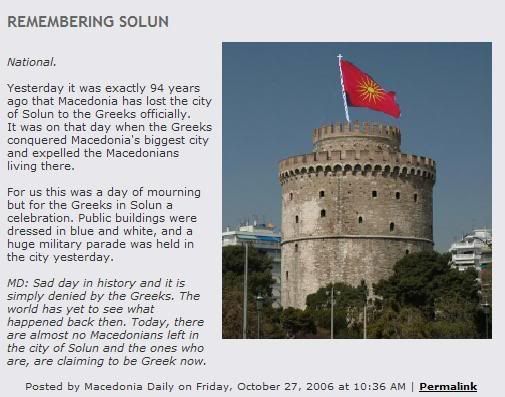
If this view, which is typically advertised by F.Y.R.O.M nationalists throughout the web, is correct one would think that there should exist a vast number of supporting texts that describe "ethnic Macedonians" in "Solun" during the centuries before it was incorporated into the Greek state. As a matter of fact there do exist volumes of first hand accounts written by individuals that either lived in Thessaloniki or travelled through Thessaloniki during past centuries and they all have one thing in common: the authors made no mention of an "ethnic Macedonian" population.
The following are some examples of first hand accounts that describe the population of Thessaloniki prior to the 20th century. The demographics put forth by each account may differ from from one another but none mention any "ethnic Macedonians".
Example 1: John Galt, 1812. No "ethnic Macedonians" mentioned.
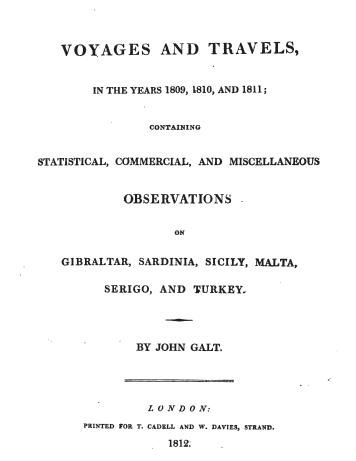

Example 2: Henry Holland, 1813. No "ethnic Macedonians" mentioned.
Example 3: Edward Clarke, 1818. No "ethnic Macedonians" mentioned.
Example 4: William Bingley, 1821. No "ethnic Macedonians" mentioned.
Example 5: William Leake, 1835. No "ethnic Macedonians" mentioned.
Example 6: Macmillan's Magazine, 1862. No "ethnic Macedonians" mentioned.
Example 7: This is how an early 19th century (1835) Encyclopedia described Salonica, no mention of "ethnic Macedonians":
How could all of these sources have overlooked what nationalists from F.Y.R.O.M allege was supposed to be blatently obvious: a significant "ethnic Macedonian" population in the town prior to its incorporation into the Greek state? The notion that "Solun" was a "Macedonian" city with a significant "ethnic Macedonian" population throughout the centuries is a nationalist myth. We only need to look back to accounts from the 19th century to put a pitchfork through their theory that "Solun" was populated by "ethnic Macedonians" until it was incorporated into the Greek state.
Finally, what is "Solun" and where did that name come from? Is it not amusing that the people who claim that they are descendants of the ancient Macedonians and who claim that "ethnic Macedonians" have lived in "Solun" continuously since the days of Alexander do not use, in their common parlance, the name their supposed ancient Macedonian ancestors gave the town? Instead they use the same name the Bulgarians use for the town. I wonder why!
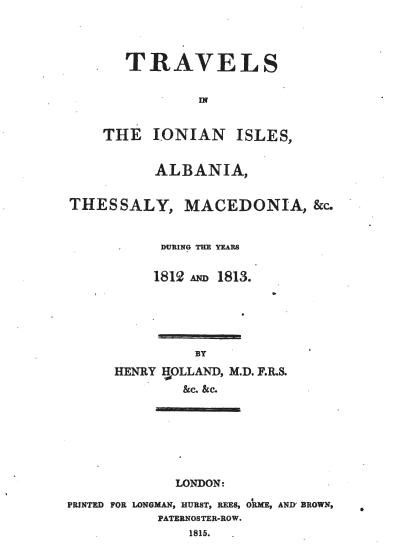
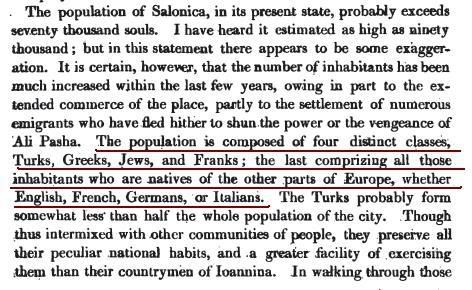
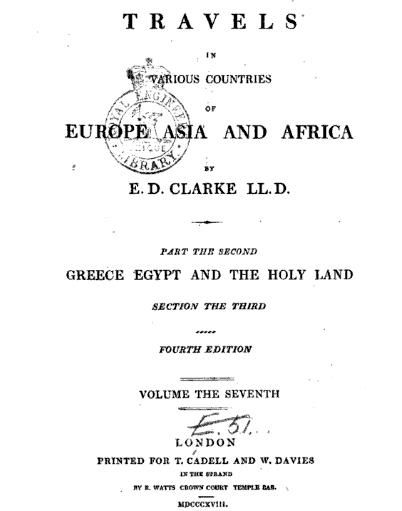
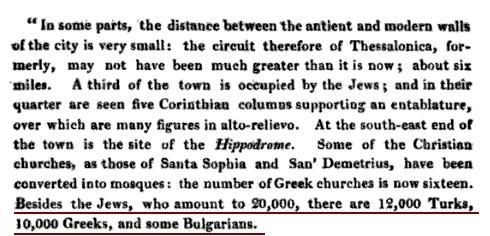
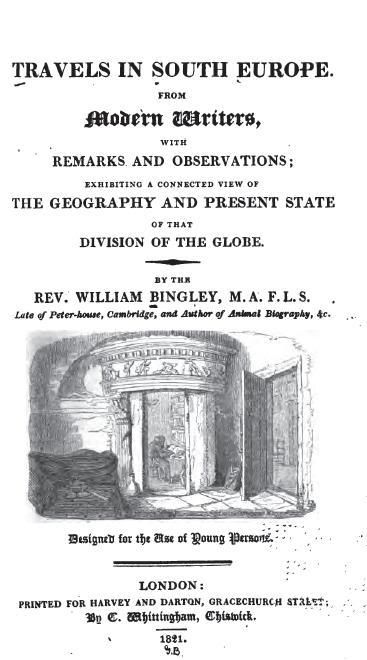
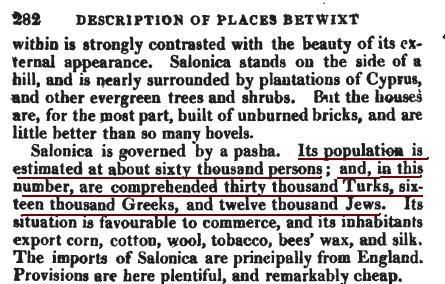
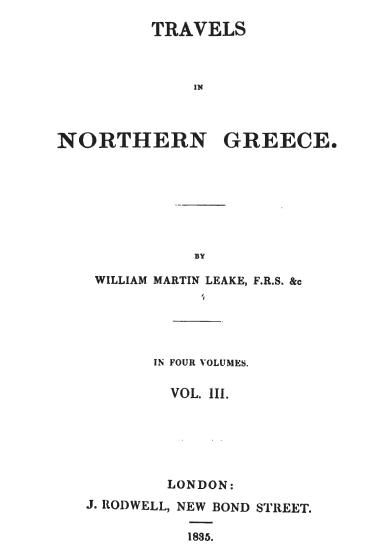
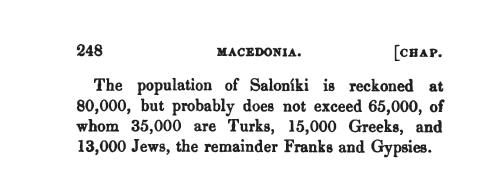


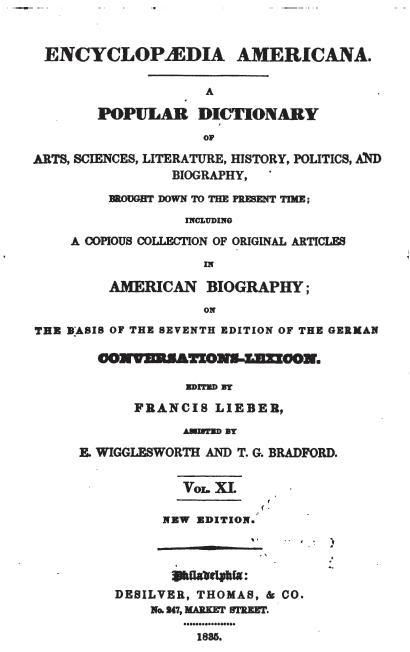
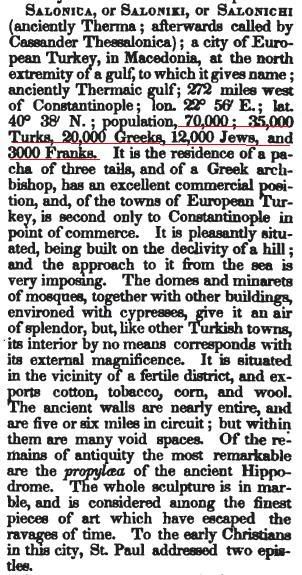
No comments:
Post a Comment